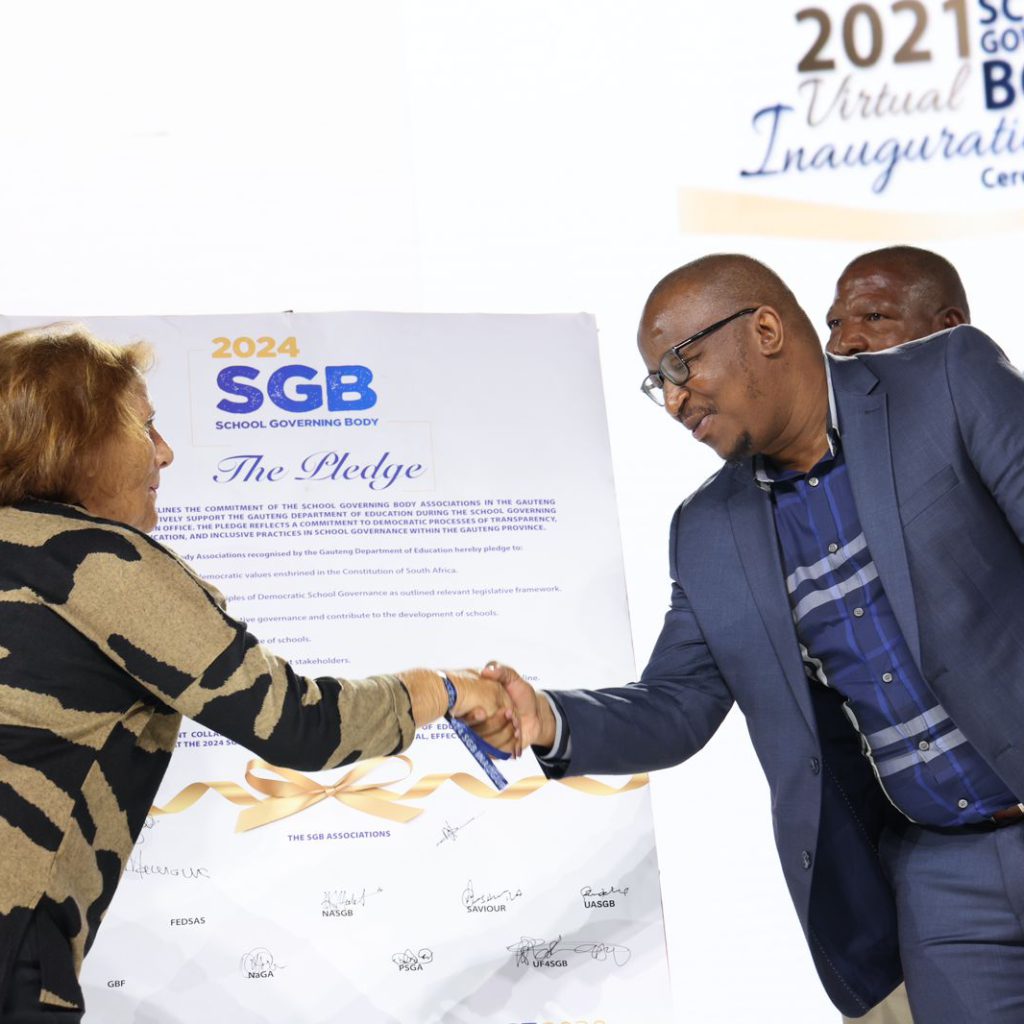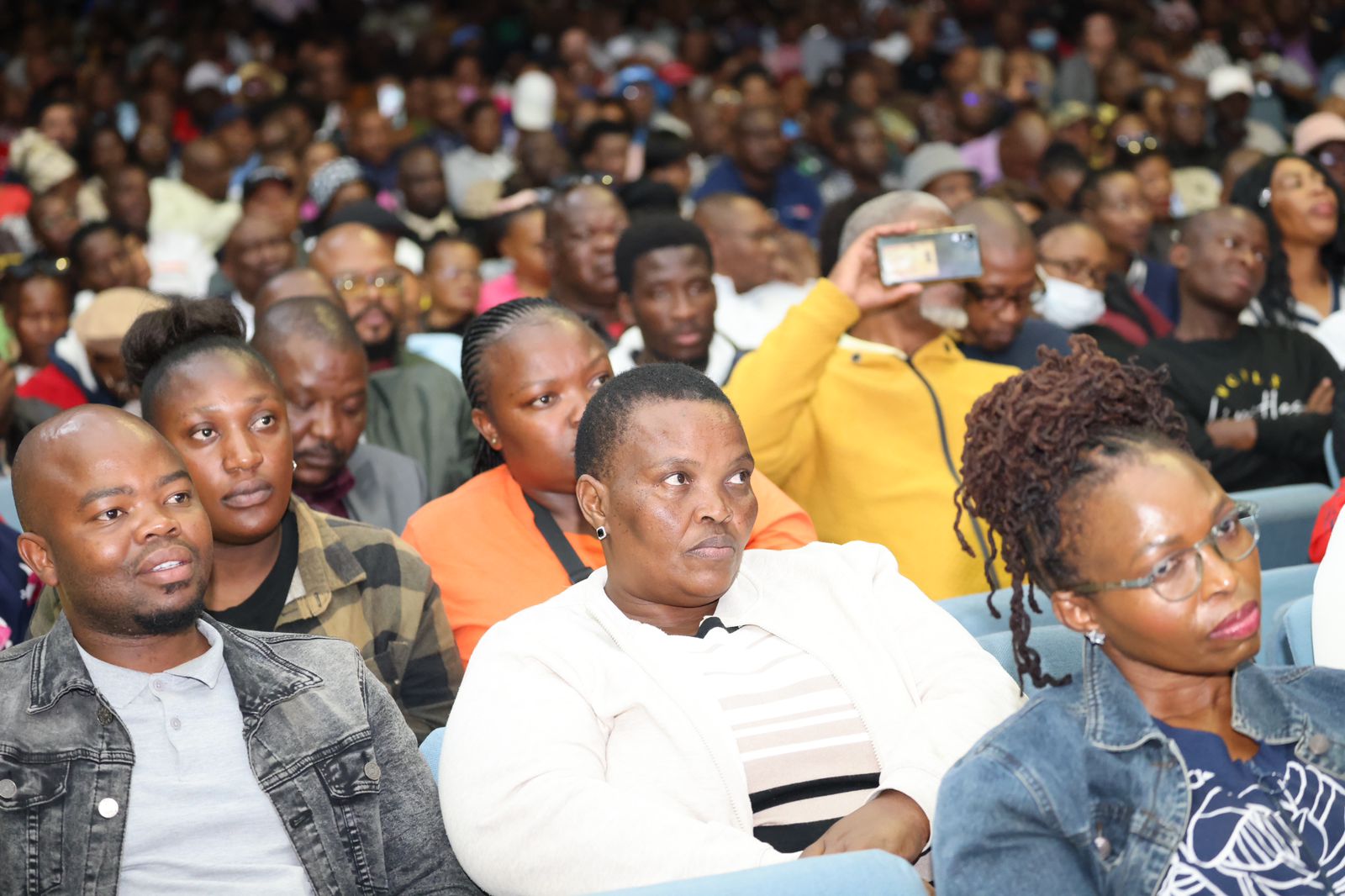
The School Governing Body (SGB) plays a pivotal role in protecting and promoting effective governance, fostering collaboration, and ensuring the quality and performance of the school.
SGB is made up of a diverse cohort of stakeholders such as teachers, parents, community members, and students. This diverse representation has got a responsibility to: ensures that different perspectives are considered in decision making; hold the schools accountable for their performance; monitor school activities, evaluate progress and ensure that schools adhere to all relevant regulations and policies; participate in the development and implementation of school policies and contribute in the development of the School Strategy Plan (vision, mission and goals) as well as developing policies that are related to curriculum, discipline and extracurricular activities; oversee the budgeting and manage finances of the school responsible (they allocate resources appropriately, prioritise spending and ensure transparency and accountability in financial matters); SGB engage with government officials, community support groups to advocate for the needs and interests of the school community; Facilitate communication and collaboration between the school and the whole community; furthermore, they foster partnerships with the local organisations and promote parental and community involvement in education; SGBs also contribute to the overall improvement of the school.
According to the South African Schools Act 84 of 1996 all public schools in South Africa are expected to elect New School Governing Body members after every three-years. Adhering to this from the 01 March till the 31 March 2024 the Matthew Goniwe School of Leadership and Governance (MGSLG) working in collaboration with Gauteng Department of Education conducted the SGB elections in all four regions of the Gauteng Province namely: Tshwaga (Tshwane and Gauteng North), Ekurhuleni (East Rand), Sedibeng West (Sedibeng and the West Rand) and Johannesburg Central.
In accelerating and finalising this process on the 4th of May 2024 the MEC of the Gauteng Department of Education Hon. Matome Chiloane again working in collaboration with MGSLG organised the 2024 SGB Inauguration Ceremony to launch the 2024 Gauteng’s newly appointed SGB. The event took place at the Rhema Bible Church in Randburg and the expected number of the participants from across Gauteng was 7000 but at least more than 5000 SGBS attended the event.
The aim of the event was to afford the MEC of the Gauteng Department of Education an opportunity to address the new SGB on their important Roles and Responsibilities in supporting Education. The event was also marking the beginning of a new three- year term for the new SGBs
The MGSLG now has a responsibility to ensure that this newly appointed SGB members are capacitated with skills and knowledge they require in order for them to perform their functions or assume additional functions successfully and effectively.
The aim of the event was to afford the MEC of the Gauteng Department of Education an opportunity to address the new SGB on their important Roles and Responsibilities in supporting Education. The event was also marking the beginning of a new three- year term for the new SGBs
The MGSLG now has a responsibility to ensure that this newly appointed SGB members are capacitated with skills and knowledge they require in order for them to perform their functions or assume additional functions successfully and effectively.

Dr Dempsey Noge, the Director in the School Governance branch within MGSLG articulating the impact of the SGB in education and the role of MGSLG in supporting schools in Gauteng, he said: ‘’ Matthew Goniwe School of Leadership and Governance has organized a number capacity-building workshops aimed at empowering SGBs to serve their schools with pride, integrity and a high level of commitment and it continues to support SGBs consistently and effectively.
SGBs serve as the apex governing authority at each school. The SGBs will be capacitated on how to effectively support the principal and educators in the performance of their professional duties, and in areas such as: school policy development and review, financial management and developing school improvement plans’’.

